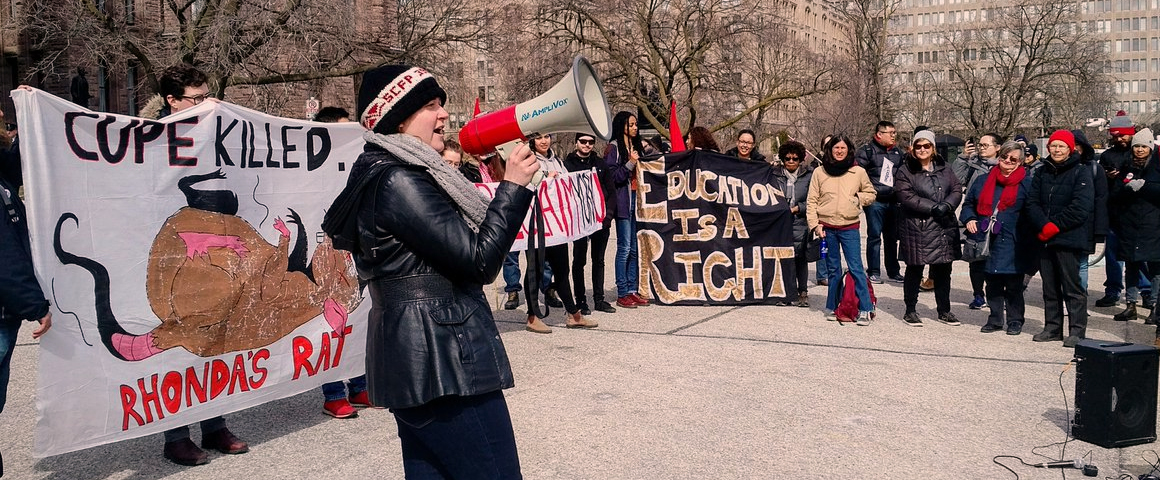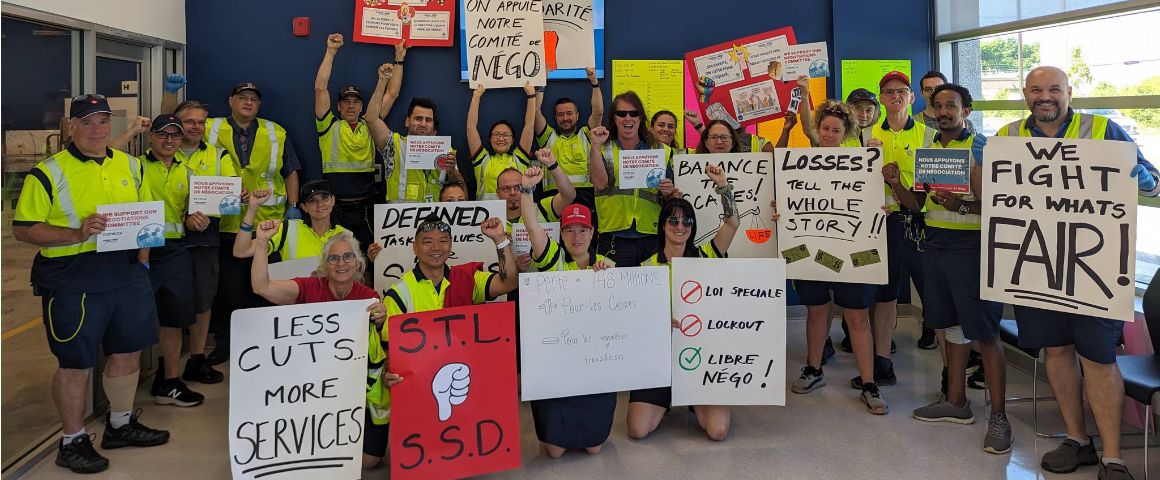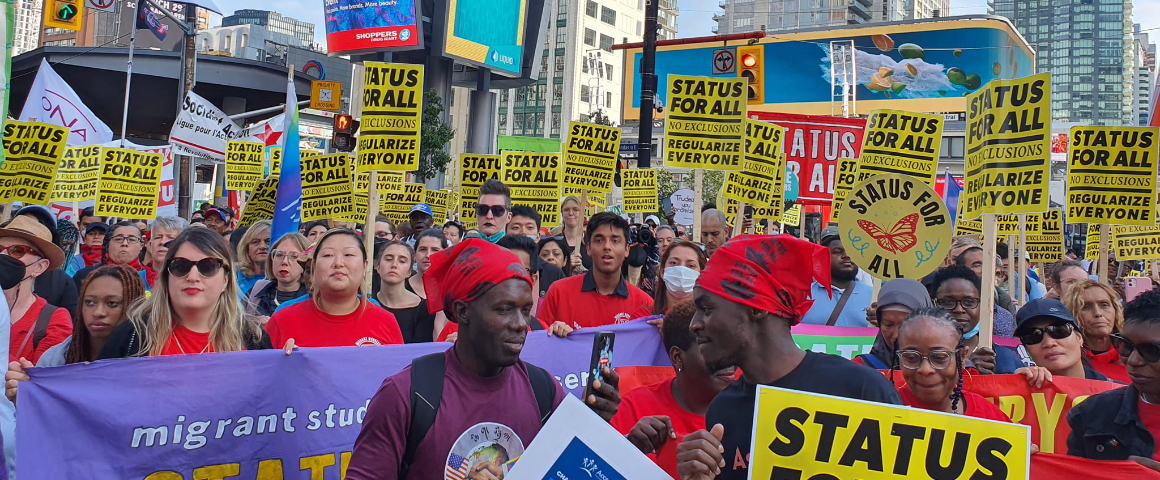We are happy to report that at the time People’s Voice went to press, all three units of CUPE 3903 voted overwhelmingly no to the forced ratification vote.
As the education workers’ strike at York University enters its fifth week, the mood on campus remains tense. Whereas in previous strikes in 2015 and 2008/2009, the university suspended all classes in order to preserve academic integrity, this time the administration of President Rhonda Lenton announced before the strike had even begun that “all classes that can continue, will continue”. This was a deliberate attempt to create chaos on campus, as students were unsure which of their classes were continuing, what form their suspended classes would take at the conclusion of the strike, which assignments and tests they were still responsible for, and whether their right not to cross the picket lines – recognized by the university’s Senate policy on labour disruptions – would in fact be respected by their professors. Though many departments quickly suspended classes, there are still thousands of students travelling to campus every day, leading to long waits at the picket lines and frustration that has boiled over into several violent incidents.
This chaos extends beyond the student body to the governance structure of the university as a whole. The senior administration has effectively carried out a coup, appropriating to the Board of Governors powers that properly belong to the Senate. The administration has argued that the Senate does not have the power to suspend classes, contradicting the Ontario legislation that established the university, the precedent from the last two strikes, and even the university’s own argument in court that decisions concerning class suspension and remediation were academic decisions and could not therefore be considered by the court (Turner v. York University 2012). At the last Senate meeting on 22 March, one member of the administration tellingly argued that the decision whether or not to suspend classes was in fact a business decision, which therefore fell under the authority of the Board of Governors rather than the Senate. This argument is consistent with the longstanding practice of the Board of Governors –composed almost exclusively of executives from finance, mining, and other large corporations – to run the university as a business and devote resources to capital projects while cutting labour costs.
Although CUPE 3903 has made clear its willingness to bargain from the outset of the strike, the employer has preferred to bargain in the media by releasing statements describing the union’s proposals as “unrealistic”. It was only on 20 March, after more than two weeks on strike, that York finally returned to the bargaining table, only to withdraw once again that night after issuing an ultimatum that they would only continue to bargain if CUPE 3903 accepted all of their demands. After this brief interlude, the strike has continued up to the time of writing with little sign from York of willingness bargain in good faith. On 28 March, York requested that the Ontario Ministry of Labour supervise a forced ratification vote, which allows them to bypass the union’s elected bargaining team and present their offer of 20 March directly to the union membership for a vote. The vote has been scheduled to take place from 6-9 April, meaning that nearly two weeks that could have been spent on bargaining will instead be wasted waiting for the vote to take place. Evidently the employer is hoping that disengaged union members will accept any deal to end the strike and return to business as usual, but given that the offer is largely unchanged from the one rejected by a General Membership Meeting of the union on 2 March, and, worse, does not contain a back-to-work protocol, leaving the conditions under which the remainder of the semester will be finished entirely to the employer’s discretion, the membership will in all likelihood reject this offer too.
The administration’s disregard for academic integrity, the norms of collegial governance, and even a pretense of good-faith bargaining suggests that what they object to is not so much the specific proposals the union has put forward in bargaining as the existence of the union itself. The employer’s bargaining representative (a lawyer who specializes in “supporting employers in labour and employment law”, according to his Linkedin profile) has complained about CUPE 3903’s practice of open bargaining, which makes bargaining transparent and accountable to the union’s membership, and its dedication to solidarity between the three bargaining units currently on strike. Only a united front of workers and students on campus can resist these attacks and reclaim the university.




